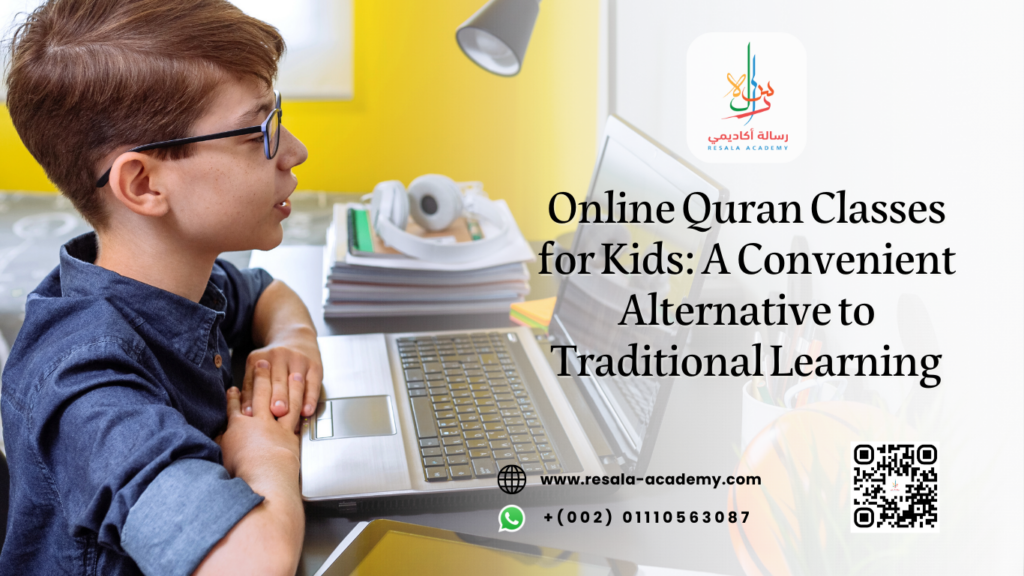Table of Contents
The Power of Technology: Embrace the Opportunity to Teach Arabic Online
Welcome to the digital era, where technology has revolutionized every aspect of our lives. From ordering groceries online to connecting with friends across the globe, there’s no denying that the power of technology knows no bounds. As an Arabic teacher, you have a unique opportunity to harness this power and make a lasting impact on students around the world to teach Arabic online.
Gone are the days when language learning was restricted to cramped classrooms or dusty textbooks. With just a few clicks, you can now connect with eager learners from all corners of the globe and share your knowledge and passion for Arabic in a virtual classroom. So why should you embrace this opportunity? Let’s dive into the many benefits that come with teaching Arabic online!
Why online teaching is a great opportunity for Arabic teachers?
1. Reach a Global Audience: Teaching Arabic online allows you to break through geographical barriers and connect with students worldwide. Whether they’re in Europe, Asia, or even Antarctica (yes, there are people there too!), you can bring the beauty of the Arabic language straight to their screens.
2. Flexibility and Convenience: Say goodbye to rigid schedules and commuting woes! With online teaching, you have the freedom to set your hours and design lessons that suit both your students’ needs and your personal preferences. Plus, no more rushing through traffic or dealing with public transportation – just grab a cup of coffee, cozy up on your couch, and let the virtual classroom come alive!
3. Personalized Learning Experience: Online platforms offer endless possibilities for customization. You can tailor lessons according to each student’s proficiency level, learning style, and interests. From interactive quizzes to engaging multimedia content, you have an array of digital tools at your disposal to create a truly immersive learning experience.
4. Enhanced Engagement: In today’s tech-savvy world, traditional teaching methods may not always captivate learners’ attention. But fear not! When teaching Arabic online, you can leverage various multimedia resources such as videos, audio clips, games, and interactive exercises that make language learning fun and engaging for students of all ages.
5. Professional Growth Opportunities: By embracing online teaching methods for Arabic instruction, you open doors to professional growth like never before. You get access has opened up opportunities for collaboration with fellow educators across borders.
Joining vibrant communities of language enthusiasts helps expand your knowledge base and stay updated on innovative techniques while sharing ideas with like-minded professionals.
Benefits of teaching Arabic online for students and teachers
Teaching Arabic online offers an array of benefits for both students and teachers. It opens up a world of opportunities to connect, learn, and grow in the comfort of your own home. Let’s explore five key advantages that make online Arabic lessons so valuable:
1. Flexibility: Online learning provides flexibility like never before. Students can choose their preferred time slots, allowing them to fit Arabic lessons into their busy schedules. Whether you’re a working professional or a student with numerous commitments, online classes offer the freedom to study at your convenience.
2. Personalized Learning: With one-on-one online teaching, instructors can tailor their lessons based on individual students’ needs and preferences. This personalized approach ensures that each student receives focused attention and guidance throughout their language journey.
3. Access to Native Speakers: One significant advantage of learning Arabic online is the opportunity to interact with native speakers from different regions worldwide. This exposure enhances students’ understanding of dialects, cultural nuances, and authentic pronunciation.
4. Engaging Multimedia Resources: Online platforms provide access to a wide range of multimedia resources such as interactive videos, audio recordings, digital flashcards, and virtual conversation practice tools. These engaging materials keep learners motivated while immersing themselves in the language.
5. Enhanced Language Proficiency: The virtual classroom environment fosters active participation through discussions, role-playing exercises, and live interactions with teachers using video conferencing tools like Zoom or Skype. Such immersive experiences accelerate language acquisition by promoting fluency development.
Embracing technology has revolutionized how we teach and learn Arabic today! By harnessing the power of online education platforms like Resala Academy.
Tips for creating an effective and engaging online Arabic lesson
Creating an effective and engaging online Arabic lesson is crucial for ensuring that students stay motivated and actively participate in their language-learning journey. Here are five tips to help you deliver a dynamic virtual classroom experience:
1. Plan interactive activities: Incorporate games, quizzes, and group discussions into your lessons to keep students engaged. Encourage them to practice speaking Arabic through role-plays or debates, promoting active participation.
2. Utilize multimedia resources: Make use of videos, audio clips, and online resources to enhance the learning experience. Visual aids can help students better understand concepts while keeping their interest piqued throughout the lesson.
3. Break down content into manageable chunks: Present information in bite-sized portions to avoid overwhelming learners. Divide your lesson plan into clear sections with defined objectives so that students can grasp one concept at a time before moving on.
4. Foster collaboration among students: Implement collaborative activities such as group projects or peer-to-peer discussions through breakout rooms or discussion boards within your teaching platform. This enables interaction between learners while enhancing their understanding of Arabic.
5. Provide regular feedback: Offer constructive feedback on assignments and assessments promptly via written comments or video recordings tailored to each student’s needs. Positive reinforcement helps boost confidence while addressing areas for improvement effectively.
By implementing these tips, you can create an immersive and engaging environment that motivates your students to excel in learning Arabic online!
Must-have tools and resources for teaching Arabic online
As an Arabic teacher who is ready to embrace the power of technology and teach online, you need to have the right tools and resources at your disposal. These tools will not only make your lessons more effective but also enhance the learning experience for your students. So, let’s explore some must-have tools that will help you excel in teaching Arabic online!
1. Interactive Learning Platforms: Utilize platforms like Resala Academy, which offer a wide range of interactive features such as virtual classrooms, multimedia content, and real-time communication with students. These platforms create a dynamic environment where students can actively engage with the language.
2. Online Whiteboards: Digital whiteboards are essential for teaching Arabic online, allowing you to write and draw on a shared screen in real-time. This visual aid helps clarify concepts and enables collaborative learning between you and your students.
3. Language-Learning Apps: Incorporate popular language-learning apps into your lessons to provide additional practice opportunities outside of class time. Apps like Duolingo or Memrise offer interactive exercises, vocabulary drills, and fun quizzes to reinforce what has been taught during live sessions.
4. Authentic Resources: Introduce authentic Arabic materials such as news articles, podcasts, videos, or songs into your lessons to expose students to real-life language usage. These resources help learners develop their listening skills while immersing themselves in Arab culture.
5. Technical Equipment: Invest in good quality headphones with microphones so that both you and your students can hear each other clearly during live sessions without any disruptions or background noise.
Remember that these tools are just the tip of the iceberg when it comes to teaching Arabic online! Explore different options based on your teaching style and adapt them accordingly to create engaging lessons that effectively meet the needs of today’s digital learners.
Challenges and how to overcome them when teaching Arabic online
Challenges and how to overcome them when teaching Arabic online:
1. Language Barrier: One of the main challenges faced when teaching Arabic online is overcoming the language barrier. As an instructor, it’s important to use clear and concise language, avoiding complex terms or jargon that may confuse students. Additionally, providing visual aids, such as images or videos, can help reinforce understanding.
2. Technical Issues: Teaching online comes with its fair share of technical glitches. From unstable internet connections to software malfunctions, these issues can disrupt the learning experience for both teachers and students alike. To overcome this challenge, it’s crucial to test your equipment beforehand and have backup plans in place in case of any unexpected technical difficulties.
3. Lack of Interaction: Online classrooms sometimes lack the same level of interaction as traditional face-to-face settings. However, this challenge can be addressed by incorporating interactive activities into your lessons such as virtual flashcards or online quizzes that encourage student participation.
4. Time Management: Balancing time between individual students’ needs and maintaining a structured schedule is another challenge when teaching Arabic online. It’s essential to set clear expectations from the beginning regarding deadlines and availability while also being flexible enough to accommodate different learning styles.
5. Motivation and Engagement: Keeping students motivated and engaged throughout their online Arabic lessons can be challenging without physical presence or direct supervision. To address this issue, vary your instructional methods by using multimedia resources like podcasts or interactive games.
Teach Arabic Online with Resala Academy
Looking for a platform that can help you take your Arabic teaching skills to the next level? Look no further than Resala Academy! With their innovative approach and user-friendly interface, they make it easier than ever to teach Arabic online.
At Resala Academy, they understand the power of technology in education. They have designed their platform to provide teachers with all the tools they need to create engaging and effective online lessons. Whether you’re an experienced teacher or just starting, Resala Academy has everything you need to succeed.
FAQs
1. Can I teach Arabic online if I am not a native speaker or do not have formal teaching qualifications?
Absolutely! While being a native speaker or having teaching qualifications can be advantageous, they are not prerequisites for teaching Arabic online. You can become an effective online Arabic teacher if you have a strong command of the language and a passion for sharing your knowledge.
2. How do I find students to teach Arabic online?
Some various platforms and websites connect teachers with students seeking to learn Arabic online. You can create profiles on these platforms and promote yourself through social media channels to attract potential students. Additionally, word-of-mouth referrals from satisfied students can also help grow your student base.
3. What tools do I need to teach Arabic online effectively?
To deliver engaging lessons, you’ll need reliable internet access, a computer or laptop with audio-video capabilities, and appropriate software for video conferencing such as Zoom or Skype. It’s also helpful to invest in a good-quality microphone and headphones for clear communication throughout the lessons.
4. How much should I charge for my online Arabic lessons?
The pricing of your lessons will depend on factors such as your experience level, qualifications, market demand, and competition in the industry. Researching what other tutors charge can give you an idea of the current rates. Remember to value your expertise while remaining competitive within the market.
5. How do I ensure my online Arabic lessons are interactive and engaging?
To keep your students interested and motivated during their learning journey, incorporate interactive activities like quizzes, games, and role-plays into your lesson plans. Utilize multimedia resources such as videos or audio recordings to make the learning experience more dynamic and immersive for your students.
Conclusion
Teaching Arabic online offers a multitude of benefits for both teachers and students. The power of technology has revolutionized education, making it accessible to learners from all walks of life. By embracing this opportunity, Arabic teachers can explore new horizons, reach a wider audience, and make a significant impact on the world.
With online teaching platforms like Resala Academy providing the necessary tools and resources, educators have everything they need to create effective and engaging lessons. By utilizing interactive materials, multimedia content, and collaborative activities, instructors can bring their virtual classrooms to life.
Of course, there may be challenges along the way when teaching Arabic online. However, with careful planning and preparation combined with flexibility and adaptability in overcoming these obstacles, teachers can ensure a smooth learning experience for their students.
So why wait? Step into the digital realm and empower yourself as an Arabic teacher by embracing the opportunities that teaching online provides. Join Resala Academy today and embark on an exciting journey towards transforming lives through language education.




